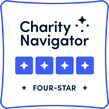A Wave Of Change: Jangamo Bay in Mozambique Declared Mission Blue Hope Spot
February 25, 2021
Header image by Jeff Hester, Photographers Without Borders
(JANGAMO BAY, MOZAMBIQUE) FEBRUARY 25th, 2021
The expansive coast along Mozambique’s Jangamo Bay offers a warm welcome to its visitors with serene blue waters, rolling sand dunes and idyllic palm trees. In Jangamo Bay, tourists can witness migrating humpback whales (Megaptera novaeangliae) and connect with manta rays (Mobula alfredi and Manta birostris) beneath the surface.

Unfortunately, the area also experiences the prominent global issue of overfishing due to unsustainable practices, including shark killing. However, local nonprofit marine conservation organization Love The Oceans has been working to transform this fishing-fueled economy into an economy supported by ecotourism backed by a healthy marine ecosystem.

Love The Oceans has delivered sustainable fishing workshops and educational projects teaching sustainability, biology and marine resource management to more than 1,250 school children to spark a passion for marine life and the ocean within the next generation. Their ultimate goal is to create a marine protected area (MPA) in the Bay through a grassroots, community-led approach.

Mission Blue has declared Jangamo Bay a Hope Spot in recognition of Love The Oceans’ work to protect the area’s magnificent populations of cetaceans and elasmobranchs, and their efforts to create an MPA in partnership with the community and mitigate unsustainable fishing practices.

Francesca Trotman, Hope Spot Champion and Founder of Love The Oceans, adds, “Becoming a Mission Blue Hope Spot is a big step toward establishing a marine protected area in the Bay, and for gaining recognition for the area as a valuable eco-tourism asset.”

Dr. Sylvia Earle, Founder of Mission Blue, says, “I applaud Francesca, the Love The Oceans team and the entire community for doing what they can to push for a marine protected area in the Jangamo Bay. With knowing comes caring, and the education they’re bringing to Jangamo Bay can empower young students to become ocean stewards and protect their blue backyard for generations to come.”

Trotman first witnessed a shark being killed in Jangamo Bay, Mozambique in 2013. Deeply moved, she jumped headfirst into learning more about what she could do – and she knew she needed to move quickly. In 2014, Francesca returned with three research assistants to collect data on the artisanal fisheries for her Masters’ dissertation, focusing specifically on shark and ray fisheries. They found that their results supported the hypothesis that the shark fin industry is highly unsustainable. However, they did not have enough data to publish scientific papers and lobby for legislative change. Trotman didn’t give up. After researching successful conservation strategies and how to create long-lasting change, she founded Love The Oceans to continue elasmobranch research and develop educational and research programs with the broader aim of establishing an MPA in Jangamo Bay and the surrounding region. Love The Oceans’ ultimate goal is to “encourage complete self-sustainability in the area, making a successful conservation outcome eventually independent of Love The Oceans.”

Allowing the Bay to recover from unsustainable fishing practices could encourage and strengthen a local economy thriving on affordable ecotourism, creating more jobs and educational opportunities for local residents. Jangamo Bay, a place where both the oceanic manta ray and the reef manta ray coexist, is home to Manta Reef, once listed in the top 10 dive sites in the world.

Pascoal Nhamussua, Community Outreach Manager for Love the Oceans, says, “The District of Jangamo is an area full of marine and wild resources which makes coastal areas ours very special for tourism and the life of the local population. This could be a place of hope – a Hope Spot – with Love The Oceans developing the work of marine conservation and sustainable fishing, which is also increasing community development. Love The Oceans is working hard in Jangamo to bring back the good, healthy wildlife.”

Manta ray tourism alone is estimated to generate US $10.9 million per year in direct revenue to dive operators in the surrounding Inhambane Province, and the wider economic impact has an estimated value of US $34.0 million annually. Without manta ray tourism, the region could lose quite a lot of vital economic activity. In 2020 Love The Oceans launched the first-ever Sustainable Fishing Project in Jangamo, spearheaded by their Community Outreach Manager Pascoal Nhamussua and the Chief of the fishing community Gemo Guilamba. Through this project a new series of sustainability workshops have been launched, fishermen are helping collect data, and the fishing community has agreed to completely eliminate net use in the bay on project completion.

Establishing an MPA in Jangamo Bay would greatly increase connectivity between existing MPAs in southern Mozambique by extending the protected corridor from Bazaruto Archipelago National Park and Pomene National Reserve, north of the Hope Spot, southwards to the MPA on the border to South Africa, Ponta do Ouro Partial Marine Reserve (Reserva Marinha Parcial) and Maputo Special Reserve. Jangamo is located in a migratory corridor for humpback whales and the Mozambique Channel serves as breeding and nursing ground for the Southwestern Indian Ocean breeding stock (breeding stock C) of humpback whales according to the IUCN. Substock C1 in Mozambique accounts for nearly 6,000 individuals, almost 10% of the world’s humpback whale population, making it one of the most significant breeding grounds in the world.

Trotman says that with little governmental resources for establishing the Bay as an MPA, the most effective way a marine protected area can be achieved is through a science-based, community-led approach. There is still much left unknown about Jangamo Bay’s marine ecosystem. In fact, the only consistent scientific research conducted in the Bay has been done by Love The Oceans. Beyond research programs, Love The Oceans also runs educational workshops discussing environmental problems with local fishermen like turtle poaching, and they’ve built several classrooms at two local schools on the community’s request. Perhaps one of the most remarkable programs they run has taught more than 800 children how to swim– connecting them with the ocean and the life within their local waters. Some of these children have progressed to Ocean Conservation Champions – an initiative Love The Oceans set up where the young adults run their own conservation workshops in their communities, are sponsored further qualifications and get involved with hands-on conservation efforts. With the impact already made on the ground in just a few short years, there is a strong cause for hope.

Silva Guicoho Cumbi, the Elder of Guinjata and local leader of Massavane, says, “In the name of Massavana local leaders, we support Love The Oceans presence, we thank them for nominating our region as a place of hope. We have been working with Love The Oceans for the last 5 years and we would like to see them continuing their jobs in our community, schools and ocean. We recognize that our region has very valuable marine and wild animals that need care and protection. Love The Oceans is working to preserve and conserve animals’ lives with the local fishermens’ help with what they bring from the sea.”

Trotman adds, “Our hope is to facilitate the needs and wants of the community to access tools for them to utilize and manage their own marine assets sustainably. That way, future generations can enjoy the ocean and benefit from it too, without the need to hunt endangered species. We hope to assist the implementation of the infrastructure to support this transition, and to continue to inspire conservation efforts both locally and globally, engaging international communities to recognize that they too have the power to implement change.”
Click here to dive into the interactive StoryMap, hosted by Esri!
About Love The Oceans
Love The Oceans is a non-profit marine conservation organization working in Jangamo Bay, Mozambique since 2014. Jangamo, whilst home to a huge host of marine life, has never been studied in-depth for any prolonged amount of time. Love The Oceans is working to protect and study the diverse marine life found here, including many species of sharks, rays and the famous humpback whales. Love The Oceans uses research and education to drive action towards a more sustainable future. Our ultimate goal is to establish a Marine Protected Area for the Inhambane Province in Mozambique, achieving higher biodiversity whilst protecting endangered species.
Love The Oceans also runs ethical marine conservation expeditions that give individuals the chance to get hands-on conservation experience, working alongside their marine biologists doing research, community work and diving in Mozambique. Love The Oceans was recently recognized as 1 of 15 global grassroots #forcesforchange by the Duke and Duchess of Sussex and received international recognition for their work.









